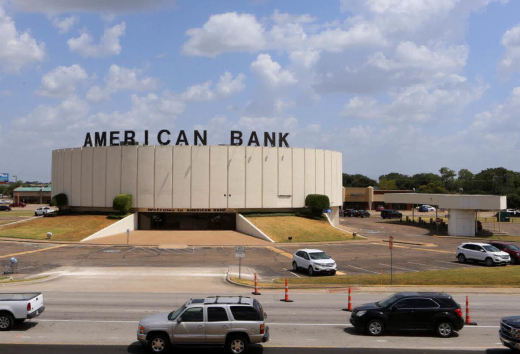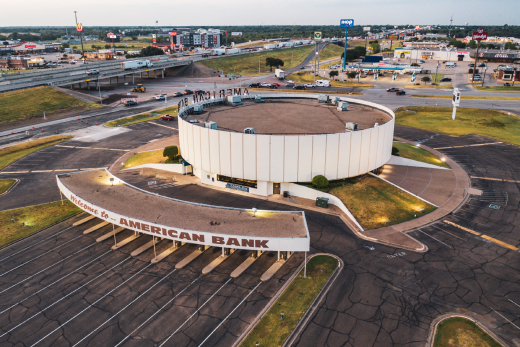According to The Architect's Newspaper, the American Bank Headquarters, commonly known as the Round Bank and designed by architect Durwood Pickle in 1979, "was conceived as a landmark from the outset, intended to create a lasting visual statement." Sadly, American Bank now plans to demolish the structure sometime in 2020 and replace it with shadow of its former self. The bank cited costs as the reason, stating, "it was not economically feasible to get it up to serviceable condition for banking in 2019."
Round Bank in Texas threatened
Author
Michele Racioppi
Affiliation
Docomomo US staff
Tags
Preservation Texas, Docomomo US, and other local preservation groups quickly came out in support of preserving the recognizable roadside landmark. Preservation Texas is seeking consideration of the site for National Register eligibility. Although it would not provide protection from demolition, properties listed on the register would be eligible for Historic Preservation Tax Credits, which would provide a 20% federal tax creidt and 25% state tax credit.
As of today, we are still awaiting official word on its eligibility from the Texas Historical Commission. Preservation Texas has also reached out to Durwood Pickle, the original architect, now 89 years old, to get a better sense of his intentions in the original design.
"American Bank to raze 'round bank' in Bellmead, open 2 new branches," Waco Tribune Herald, August 20, 2019.
"The iconic Round Bank in Bellmead, Texas, will be demolished," The Architect's Newspaper, September 2, 2019.
Update October 11, 2019
Preservation Texas has just shared the news that the Texas Historical Commision has determined that the Round Bank is eligible for listing in the National Register of Historic Places, noting that the site "is one of the premier examples of 1970s late modern architectural design in the greater Waco area" and "exceptionally significant as a clear expression of minimalist modernism in 1970s commercial and institutional design." According to Preservation Texas, "this opens up the possibility for the owners to make use of state and federal rehabilitation tax credits (45% of rehab costs) as an alternative to demolition."


